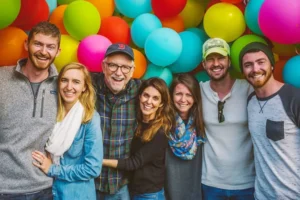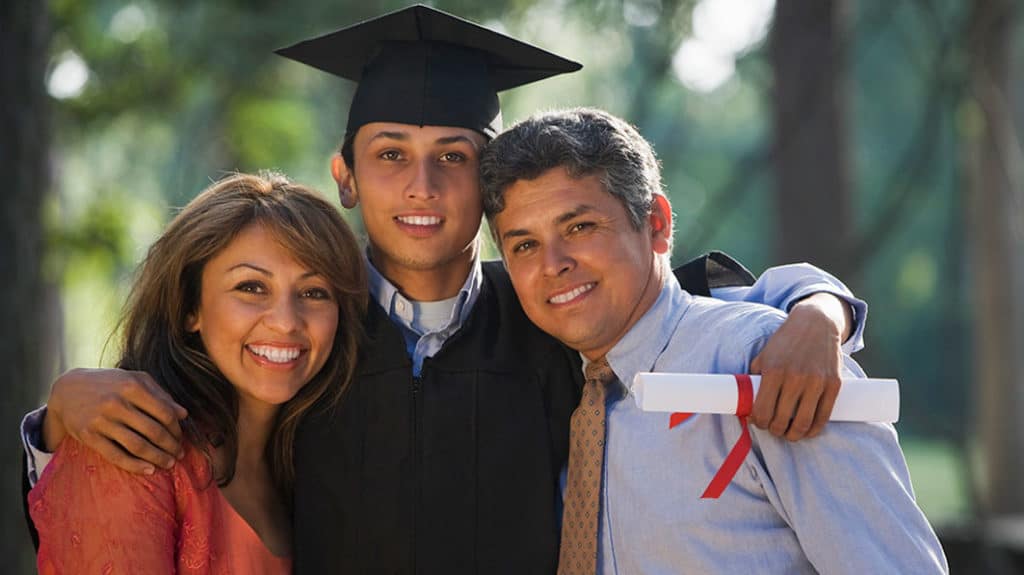A second ceremony occurs when a son finishes high school. This, too, is a pivotal time, fraught with potential dangers. Upon leaving home for college, a young man discovers a newfound sense of freedom. And unless he is well-grounded, he may choose to renounce the values of home. Biographer Jay Parini describes John Steinbeck’s first year at Stanford University:
Steinbeck wanted desperately to break free from parental bounds, and by midyear he was refusing to visit his parents every weekend — much to their consternation. He cultivated a sense of himself as a libertine; indeed, he seems to have made a conscious point of straying from the narrow path his parents laid down for him.
Steinbeck’s first year at college — and all of his subsequent years — was filled with drink, free sex and a host of contemptible behaviors, a course considered more and more the norm for college-age males. Because of this danger, our graduation ceremony gives our sons a vision greater than personal pleasure; we want them to view their time at college (or military service, work, etc.) as a great opportunity to make a mark for Christ, not for self.
All of our sons have now been through our high school graduation ceremony. It has had a profound effect upon each of their lives. The three dads took each of these young men to a nice restaurant (as you’ve discovered, food is a critical component of our ceremonial format!) and celebrated this major passage in their lives over dinner, Then, in a formal way, we talked with each son about a number of issues pertinent to leaving home and continuing his education at college — which they all have. Each father openly shared about his own collegiate successes and failures; we described honestly and in detail the things we did wrong, the things we did right and how these things impacted our lives later on. We also discussed what we would choose to do over if we could, with our wisdom of experience.
It was immediately clear that having a group of dads share like this dramatically increased the power of this moment. We emphasized the importance of beginning strong academically, setting goals and boundaries and resisting the host of temptations that awaited. The son was given the opportunity to ask any questions on any subject. The interaction was often spirited and frank.
Then the three of us brought out a picture of our families’ crest and explained select portions of the imagery to him. For instance, we used the three swords to represent one essential manhood truth from each dad that we wanted him to take along to college.
One of the truths we always communicated to our sons at this juncture was that we will no longer treat them as boys. From now on, our relationship will be more like peers. They are on their way to becoming men now and can be expected to be treated as such.
The discussion usually lasted for two hours or more. Once this part of the evening ended, we returned to one of our homes, where all the other members of the three families had gathered. We then pulled everyone into a circle around the college bound son. Each father talked generously about this young man’s achievements and character, affirming his commitment to Christ. Other family members were invited to make special comments, too. Then everyone laid hands on this young man and prayed for him. Awesome!
“I’ll Never Forget It!”
In describing the impact of this one evening, Bill Wellons, Jr., said things such as “It was incredibly affirming. … It made me feel important. … It was really challenging.”
Ben Parkinson echoes Bill’s statements. By his own admission, Ben has always been skeptical about ceremonies. Ben said that his dad, a big movie buff, “is the kind of guy who will watch the movie Glory and then initiate a three-hour discussion. When I first heard about this knighthood business, I thought to myself, Did Dad see the movie First Knight and get inspired?”
But Ben’s skepticism faded quickly when he personally went through the ceremony described above. He discovered that now, for the first time, he was answerable for his decisions. Dad wouldn’t be looking over his shoulder anymore.
Another powerful effect has been the way Bill, Jr., and Ben view the other two dads. Said Bill, Jr., “After that night, every time I returned home from school, I couldn’t wait to tell Mr. Parkinson and Mr. Lewis what I was learning. And every time I saw them, they were quick to ask how things were going.”
Said Ben, “The other two dads became mentors for me. I knew if I had a problem, I could go to them and talk about it.”
Both Bill, Jr., and Ben were awed by the process. That their fathers would take the time to plan the ceremony and share their hearts with them has left a profound mark.


















